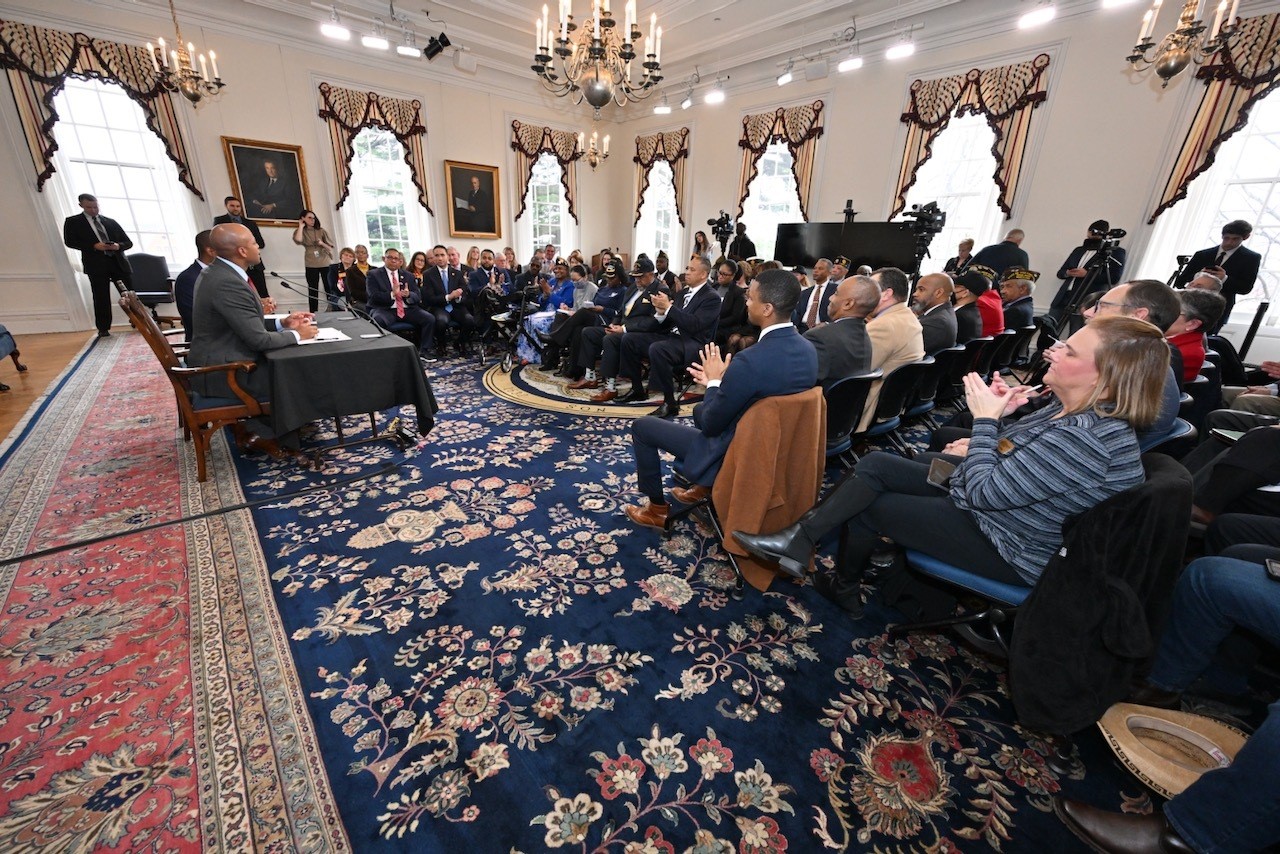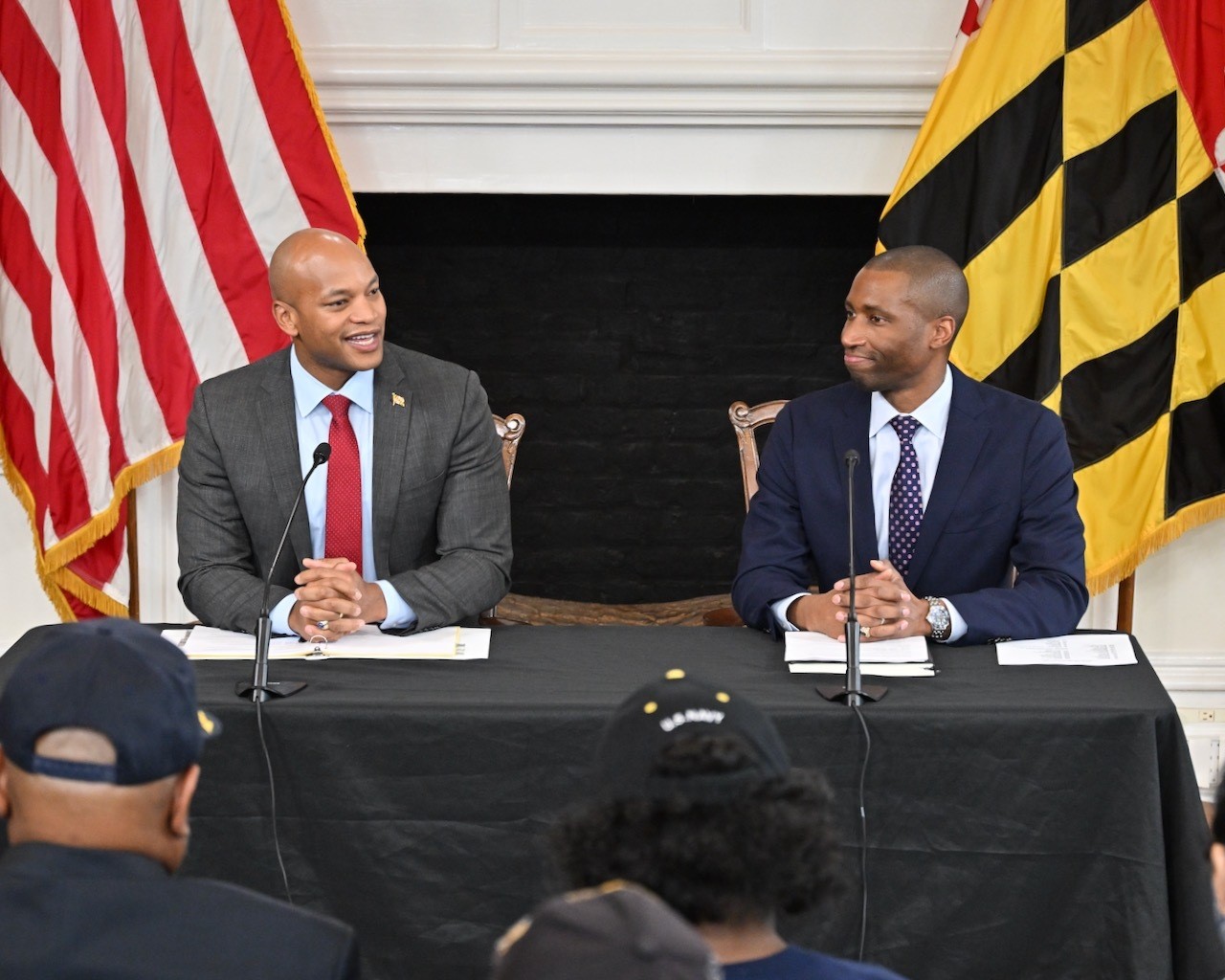Today, Governor Wes Moore hosted nearly 100 veterans at the State House to reaffirm his legislative agenda to improve the lives of Maryland veterans, National Guard members, and their families — which includes $30 million to support his proposed Keep Our Heroes Home Act, and $5 million to provide healthcare services for National Guard members through his proposed Healthcare for Heroes Act. Governor Moore was joined at the veteran's roundtable by Acting Secretary of the Department of Veteran Affairs Tony Woods and members of the general assembly.

“These investments show our administration's commitment to supporting the lives of those who have made countless sacrifices to protect our nation,"
said Governor Moore. “It was my honor to hear our veteran's perspectives on their needs and how we can help them. I am proud to lead the charge in providing legislation and funding that will ensure my fellow veterans and National Guard members are taken care of, here at home."

Keep Our Heroes Home Act: This legislation expands the military retirement tax exemption to $25,000 for all recipients in Tax Year 2023 and to $40,000 in Tax Year 2024 and each year thereafter. Current law allows any individual receiving military retirement (including surviving spouses) to deduct the first $5,000 from their taxable income if they are under the age of 55 and $15,000 from their state taxable income if they are 55 years of age or older. This bill eliminates the age distinction and expands the tax exemption for any veteran or surviving spouse receiving this retirement income.
Healthcare for Heroes Act: This legislation will allow members of the Maryland National Guard and their families, who are eligible for Tri-Care Reserve Select, to receive health and dental care free of cost. The bill establishes the Tri-Care Premium Reimbursement Program within the Maryland Military Department (DMIL). Guard members will submit their own and their families' premium payments to the program in order to be reimbursed for the full cost. The National Guard's four employment statuses of members include Active Guard Reserve (AGR), Dual Status Technicians (DST), Federal Civilian Employees, and Traditional Guard Service Members (M-Day).